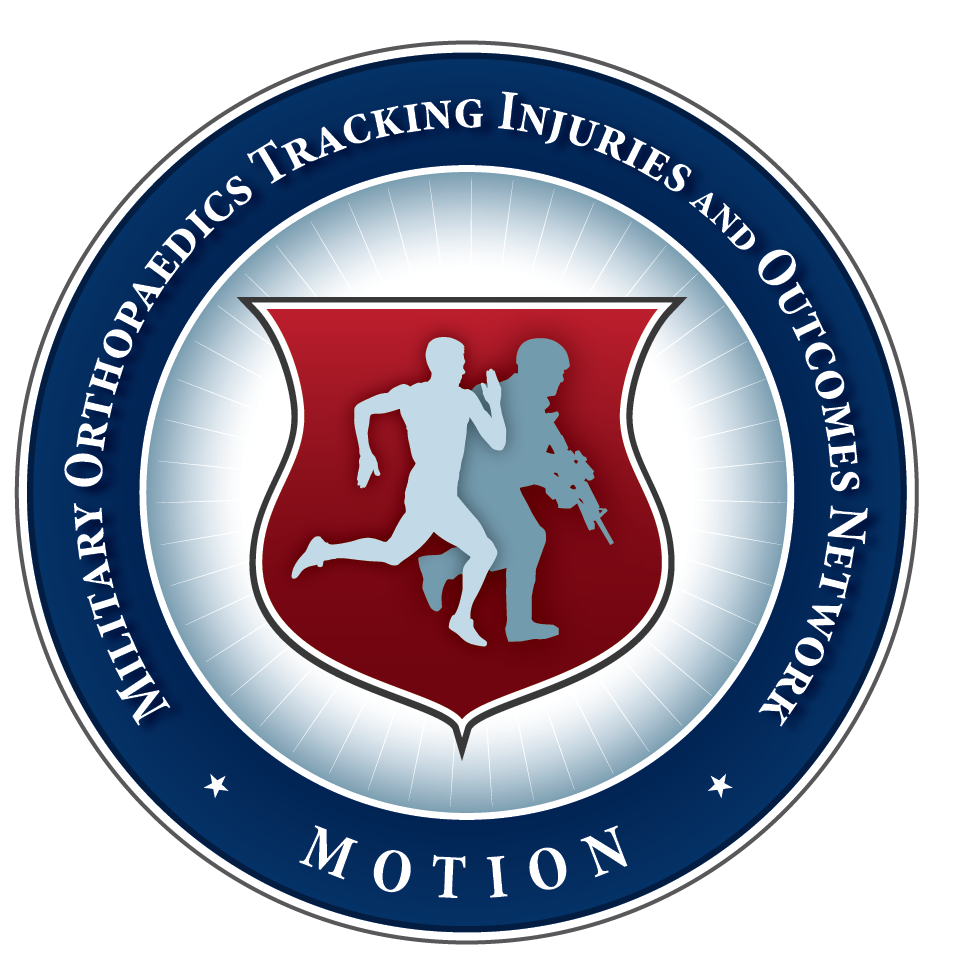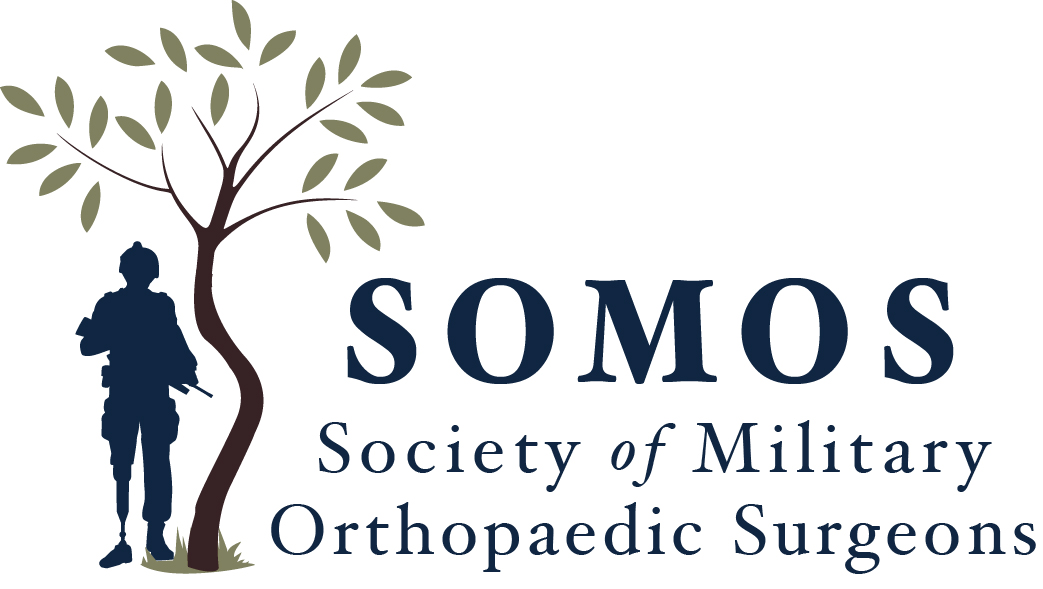
Improvement of US Military medical readiness, health, and welfare through systematic outcomes evaluation.
About MOTION
Military Orthopaedics Tracking Injuries and Outcomes Network (MOTION) is the first DoD-wide data-driven initiative to optimize military-specific and clinically-relevant patient outcome metrics for musculoskeletal injuries (MSKI). MOTION will have meaningful impact addressing the largest source of disability worldwide as well as Military readiness impairment, non-deployable status, and separation within the US Military with all stakeholders devoted to working towards a shared a pledge of improving MSKI outcomes based on both patient and surgeon perspectives. MOTION will be a role model for data-driven outcomes research with metrics for excellence in collecting, validating and evaluating patient reported outcomes and associated provider assessments to improve MSKI outcomes through provision of value and evidence-based care.
MOTION was created because there was no DoD-wide enterprise system that collects, validates and evaluates patient reported outcomes and provider assessments analyzing past and present clinical practice processes and patient outcomes. There was no surgeon/provider feedback with data-driven assessments of care with actionable information that would lead to improvements in clinical care quality, surgical decision making based on patient reported outcomes and outcomes assessing return to duty and quality of life after MSKIs and also costs over the care cycle. MOTION was developed with goals that are aligned with the Military Health System (MHS) Quadruple Aim vision of Improved Readiness, Better Health, and Better Care at Lower Cost focusing on MSKI. Value is defined as outcomes that matter to patients most relative to the cost of achieving them.
MOTION is committed to excellence and dedicated to improve MSKI outcomes through a paradigm shift from evidence-based to patient-centric value-based research and innovation with reliable collection and systematic evaluation of short- and long-term MSKI patient reported outcomes and associated provider intra-operative assessments. So far, both patient and healthcare provider assessments along with relevant electronic health record (EHR) data at all military treatment facilities (MTFs) from point of injury to surgery, rehabilitation and final disposition have been collected from more than 15,000 patients.
In a culture of equitable partnerships of stakeholders with shared values, each stakeholder, patients, surgeons, rehabilitation providers and the MOTION Corps has rights and responsibilities to benefit them and others. MOTION will provide the governance, funding, IT and statistical infrastructure and management to perform all necessary activities to sustainably support this effort and create value for each stakeholder. It will also fairly acknowledge contributions to reward efforts aligned with MOTION by providing recognition for efforts that matter to them. The MOTION platform is an interactive enabling environment for sharing knowledge and data, IT and statistical resources with dashboards for data visualization and is an established system for the reliable collection of validated health outcome measures with associated clinical EHR data for the care cycle.
Surgeons will be committed to excellence and dedicated to providing patient centric, value-oriented care and will be encouraged to take intelligent risks for innovation in a collaborative environment to enhance the quality of life of all stakeholders, optimize MSKI outcomes that matter to patients and the Military while working towards professional development. For patients, MOTION will provide patient-centered care with metrics to measure excellence, be sensitive to changing Service Members (SM) Military requirements and factors that drive patient engagement as we strive to improve their well-being, outcomes from MSKI, health and care experiences.
MOTION will address the immediate need to reduce the impact of MSKI on military health and readiness, to mitigate long-term physical detriments, prioritize returning the Warfighter to full form and function or enhance their quality of life if they cannot return to duty following MSKI with effective treatments. Understanding what helps SMs heal best from MSKI both long-term and short-term, allows the MHS to employ performance-based resource allocation and outcome-based resource utilization providing the right care at the right time.
The MOTION platform is an asset, a powerful database that has data about patient visits at all MTFs from the time of their injury, pre- and post-operative injury and care including physical therapy, healing rates, complications, radiographic outcomes, implant/ joint replacement failures, return to duty/activity, other non-orthopaedic measures of health, hospital and other costs, demographic characteristics and comorbidities as well as patient and provider assessments that are available for all active duty SMs throughout their career.
The success of MOTION will depend on its adoption by patients and also by providers across MTFs to foster large-scale collaborative data sharing efforts in research that is open, collaborative, has inclusive decision making and is participatory for everyone with access to MOTION at any MTF.

|






